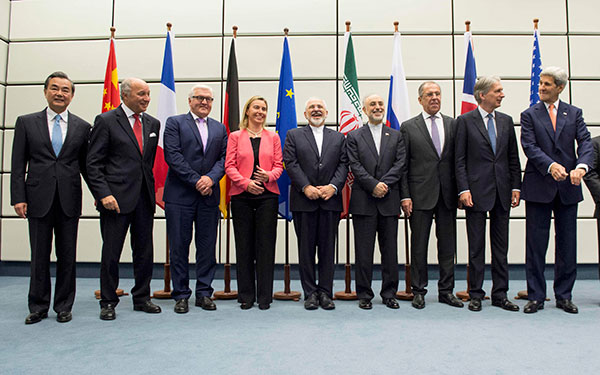Iranian nuclear deal set to increase trade with China
Updated: 2015-07-15 07:11
By ZHAO SHENGNAN/FU JING(China Daily)
|
||||||||
Agreement will restrict Teheran's program and ease economic sanctions
Teheran and six world powers reached a historic nuclear deal in Vienna, Austria, on Tuesday that will enable a revitalized sanction-free Iran to boost trade and cooperation with China, analysts said.
The long-awaited agreement with China, Britain, France, Germany, Russia and the United States aims to limit Iran's nuclear program in exchange for the gradual suspension of sanctions.
The sanctions have slashed the Middle East country's oil exports and crippled its economy.
Shada Islam, policy director of the Brussels-based think tank Friends of Europe, said China could help Iran to mitigate the impact of the sanctions by providing short-term "emergency aid".
This would help to meet shortfalls in the health sector and supply urgently needed essential items.
"In the long run, the focus will of course be on the development of Iran's infrastructure and oil and gas sector," said Islam. "Given its location and diverse regional interests, Iran will also inevitably play a crucial role in China's (new) Silk Road proposal."
An Huihou, a former Chinese ambassador to Egypt, said Iran has a strong desire to participate in China's Silk Road initiatives amid Teheran's ambitious plans to revive its economy.
Closer economic links would also boost the "going global" strategy of Chinese enterprises and further elevate China's ties with other Middle East countries, An added.
Iran, a key stop on the ancient Silk Road, has joined the China-led Asian Infrastructure Investment Bank as a founding member.
Two-way trade volume reached a record $51.8 billion last year, up 31.5 percent from 2013. The major items that China, the world's largest energy consumer, imports from Iran include crude oil and iron ore.
Iran has the world's fourth-largest oil reserves and the second-largest reserves of natural gas.
Iranian officials said Teheran is looking to return to pre-embargo oil export levels, though experts said increasing production will take time. Saudi Jadwa Investments suggested in a recent report that Iran will add just 150,000 barrels per day by the fourth quarter.
Fraser Cameron, director of the Brussels-based EU-Asia Center, said the Iranian economy has outstanding prospects because of its abundant oil and young and dynamic population. The gradual lifting of sanctions will help it to realize its potential.
"It could quickly become a major economic power in the Middle East," Cameron said. "It occupies a key geostrategic situation and could be an important hub for the new Silk Road initiatives. China-Iran relations could also develop quickly since they have complementary economies."
Li Shaoxian, an expert in Middle East studies at Ningxia University, said the reopening of the Iranian market would increase economic competition between China and Western countries. China has advantages including a rich knowledge of the local market and huge foreign exchange reserves that could be invested.
Fredrik Erixon, director of the European Center for International Political Economy in Brussels, said sanctions will probably be wound down progressively, and it will take longer than people may at first realize for business to really take off.
"But eventually, the economy of Iran can be revived," said Erixon. "China has played a crucial role in the Iran talks, and it is obvious that the world will look to Beijing for leadership in the management of the implementation process."
- Iran, big powers clinch landmark nuclear deal after marathon talks
- Iran, world powers push for Tuesday nuclear deal
- Chinese FM urges no further delay of Iran nuclear talks
- Iran nuclear negotiations shouldn't be further delayed: Chinese FM
- Iran nuclear deal expected Monday
- No Iran nuclear deal made, no extension of talks
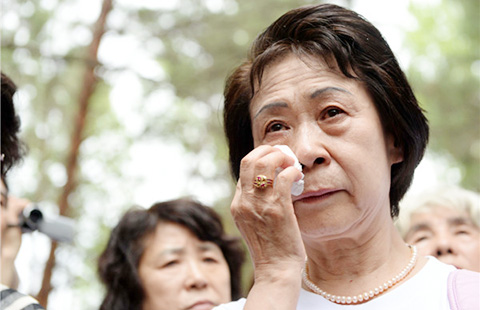
 Japanese war orphans visit graves of adoptive Chinese parents
Japanese war orphans visit graves of adoptive Chinese parents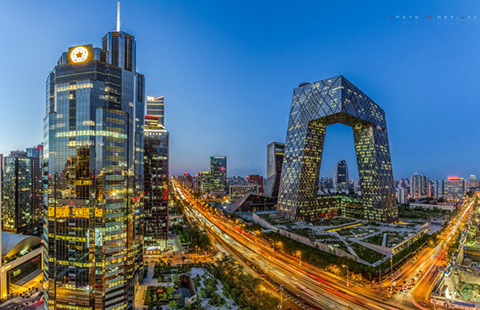
 Top 10 Chinese provinces with most stock market investors
Top 10 Chinese provinces with most stock market investors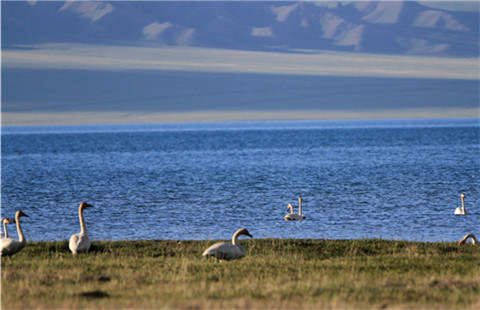
 Lovely 'pearl' on the mountain: Sayram Lake
Lovely 'pearl' on the mountain: Sayram Lake
 Student investment group scores big on stock market
Student investment group scores big on stock market
 Beijing roasts in high temperature
Beijing roasts in high temperature
 The world in photos: July 6-12
The world in photos: July 6-12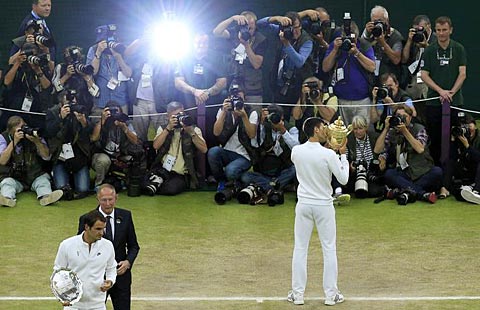
 Djokovic downs Federer to win third Wimbledon crown
Djokovic downs Federer to win third Wimbledon crown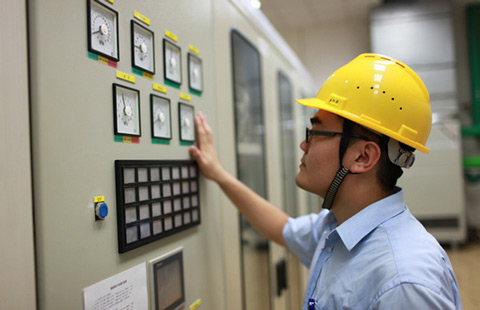
 Top 10 Chinese companies by profit margin in 2015
Top 10 Chinese companies by profit margin in 2015
Most Viewed
Editor's Picks

|

|

|

|

|

|
Today's Top News
Pentagon tones down on China threat
Hillary Clinton calls for higher wages for everyday Americans
Stock bargains seen in market by some
IQiyi buys 800 Paramount films
A day in the life of Muslims during Ramadan in NW China
China's carbon growth rate in decline: report
Mexico: Drug lord 'El Chapo' Guzman escapes, manhunt begins
Lawyers held for 'trying to influence verdicts'
US Weekly

|

|
